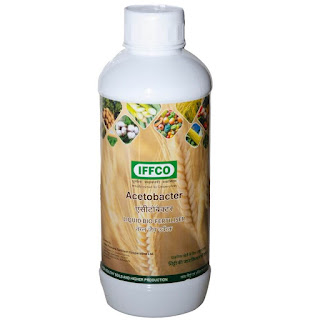Things to Know Before Using Bio-Fertilisers
Being a price-efficient and sustainable alternative to chemical fertilizers, bio-fertilisers help improve the soil's physical and chemical properties to make it more fertile. Bio-fertilizers contain essential ingredients that help plants cope with abiotic stress and promote better yields. Bio-fertilizers offer a healthy growth environment that can last you for future growing seasons as well.
In recent years, there has been a paradigm shift in what farmers use in their farms to improve yield. Bio-fertilizers are a new-age, sustainable alternative to chemical fertilizers and are low-cost, efficient, and environment-friendly sources of essential nutrients for plants. Bio-fertilizers, due to their various properties, have gained immense popularity in modern agriculture for improving soil fertility. Here are some key aspects that one should know about before using bio-fertilizers on their farms:
Decoding Bio-Fertilisers
Bio-fertilizers are natural fertilizers that include dormant or live cells of strains of effective microorganisms that are capable of enhancing soil fertility and plant nutrition. They contain essential bacteria, fungi, or algae that form symbiotic relationships with plants. These beneficial microorganisms facilitate nutrient uptake, promote growth, and help prevent harmful bacteria from damaging the plants. Nowadays, the fertilizer market is full of various types of bio-fertilizers that offer different benefits. Hence, it is crucial to understand the different types of bio-fertilizers available to ensure making the right choice. The most popular types of bio-fertilizers available today include:
Nitrogen-Fixing Bio-Fertilisers
Nitrogen is the most important nutrient that plants need to strive and grow, and nitrogen-fixing bio-fertilizers contain bacteria that can fix nitrogen from the air, thereby promoting plant health.
Phosphorus Solubilising Bio-Fertilisers
The type of bio-fertilizer contains bacteria or fungi that can effectively solubilize phosphorus from rock phosphate. The phosphorus is then made available to plants for their steady growth, promoting good yield.
Mycorrhizal Bio-Fertilisers
This type of bio-fertilizer contains fungi that form symbiotic relationships with the plant roots to promote growth. The bio-fertilizer helps plants absorb water and essential nutrients from the soil.
4 Things to Check Before Buying a Bio-Fertiliser
Before choosing a bio-fertilizer, it is important to keep certain crucial factors in mind, like soil analysis, application methods, etc.
Soil Analysis
Before choosing a bio-fertilizer for your farm, always analyze the quality of your farm’s soil. The analysis will help you identify essential nutrient deficiencies, check soil pH levels, and other parameters that can affect the effectiveness of bio-fertilizers. This will essentially help you choose the most appropriate bio-fertilizer for your farm.
Quality and Compatibility
Choosing a high-quality bio-fertilizer from the right source is crucial for your farm. Always ensure that the product you choose is free from harmful contaminants and rich in viable microorganisms. Additionally, read the packaging of the product label carefully to check compatibility with your existing farming practices.
Application Methods
After choosing a compatible bio-fertilizer for your farm, it is important to ensure the proper application of the product. Bio-fertilizers can typically be applied through various methods, such as foliar spray, seed treatment, and soil application. To ensure efficiency, one should follow the instructions provided by the manufacturer or seek advice from agriculture experts for proper application.
Limitations and Considerations
While bio-fertilizers offer endless benefits, one should also be aware of their limitations. To perform effectively, bio-fertilizers may require specific environmental conditions and may not perform adequately under extreme temperatures or soil pH levels. Hence, it is essential to read the product label carefully and to store them properly to maintain their effectiveness. Additionally, it is important to note that bio-fertilizers should be used mindfully as a supplement to comprehensive soil and crop management strategies.
By understanding the composition of bio-fertilizers, their benefits, application methods, and limitations, one can make an informed decision for maximizing their farm’s potential and contribute to the creation of a greener and more sustainable future.




Comments
Post a Comment